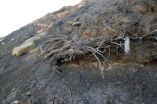(Press-News.org) An effort to increase biofuel production has led scientists to discover genes in yeast that improve their tolerance to ethanol, allowing them to produce more ethanol from the same amount of nutrients. This study, published in the December 2010 issue of Genetics (http://www.genetics.org), shows how genetically altered yeast cells survive higher ethanol concentrations, addressing a bottleneck in the production of ethanol from cellulosic material (nonfood plant sources) in quantities that could make it economically competitive with fossil fuels.
"Our hope is that this research will take us closer to the goal of producing cheap, efficient, and environmentally friendly cellulosic ethanol," said Audrey P. Gasch, Ph.D., a researcher involved in the work and an Assistant Professor of Genetics from the University of Wisconsin-Madison. "At the same time, we've learned a lot about how cells respond to alcohol stress. So the project has been very productive from multiple angles."
To make this discovery, scientists turned to nature, studying how natural strains of the yeast Saccharomyces cerevisiae respond to ethanol treatment. They concluded that many wild strains of yeast respond to ethanol much differently than do traditional laboratory strains. When these wild yeast cells were treated with a low dose of ethanol, they mounted a response to become super-tolerant to high doses. By comparing and contrasting strains with different responses to ethanol, the researchers were able to quickly identify the specific genes responsible for the increased ethanol tolerance. They identified all genes in the yeast genome whose expression was affected when cells responded to ethanol. Comparing the responses of wild strains and a laboratory strain pointed the researchers to genes involved in high ethanol tolerance. The researchers were able to coax super ethanol tolerance in the laboratory strain by increasing expression of these genes.
"A lot of people think yeast is only useful to make beer, wine and bread," said Mark Johnston, Editor-in-Chief of the journal Genetics, "but it is also a key player in making 'green,' sustainable fuel sources part of the world's economy. By genetically priming these organisms to produce more ethanol, Gasch and her team have taken an important step away from fossil fuels."
INFORMATION:
DETAILS: Jeffrey A. Lewis, Isaac M. Elkon, Mick A. McGee, Alan J. Higbee, and Audrey P. Gasch, Exploiting natural variation in Saccharomyces cerevisiae to identify genes for increased ethanol resistance.
Genetics, Vol. 186, 1197-1205, December 2010, Copyright © 2010
doi:10.1534/genetics.110.121871
Since 1916, Genetics (http://www.genetics.org) has covered high quality, original research on a range of topics bearing on inheritance, including population and evolutionary genetics, complex traits, developmental and behavioral genetics, cellular genetics, gene expression, genome integrity and transmission, and genome and systems biology. Genetics, the peer-reviewed, peer-edited journal of the Genetics Society of America is one of the world's most cited journals in genetics and heredity.
'Green genes' in yeast may boost biofuel production by increasing stress tolerance
Research published in the journal Genetics identifies new genes that improve ethanol tolerance in yeast cells, with the goal of generating higher ethanol concentrations for biofuel production
2010-12-16
ELSE PRESS RELEASES FROM THIS DATE:
Ancient forest emerges mummified from the Arctic
2010-12-16
SAN FRANCISCO -- The northernmost mummified forest ever found in Canada is revealing how plants struggled to endure a long-ago global cooling.
Researchers believe the trees -- buried by a landslide and exquisitely preserved 2 to 8 million years ago -- will help them predict how today's Arctic will respond to global warming.
They also suspect that many more mummified forests could emerge across North America as Arctic ice continues to melt. As the wood is exposed and begins to rot, it could release significant amounts of methane and carbon dioxide into the atmosphere ...
New colonoscopy skills assessment tool developed for trainees
2010-12-16
OAK BROOK, Ill. – Dec. 15, 2010 – Researchers at the Mayo Clinic in Rochester, Minn., have developed a new skills assessment tool for colonoscopy trainees. A report outlining the development and validation of the Mayo Colonoscopy Skills Assessment Tool (MCSAT), designed for the assessment of cognitive and motor skills during colonoscopy training, appears in the December issue of GIE: Gastrointestinal Endoscopy, the monthly peer-reviewed scientific journal of the American Society for Gastrointestinal Endoscopy (ASGE).
Ensuring that gastroenterology fellows and surgery ...
Missing molecules hold promise of therapy for pancreatic cancer
2010-12-16
By determining what goes missing in human cells when the gene that is most commonly mutated in pancreatic cancer gets turned on, Johns Hopkins scientists have discovered a potential strategy for therapy.
The production of a particular cluster of genetic snippets known as microRNAs is dramatically reduced in human pancreatic tumor cells compared to healthy tissue, the researchers report in a study published Dec. 15 in Genes and Development. When the team restored this tiny regulator, called miR-143/145, back to normal levels in human pancreatic cancer cells, those cells ...
Nanoscale gene 'ignition switch' may help spot and treat cancer
2010-12-16
In a proof of principal study in mice, scientists at Johns Hopkins and the Virginia Commonwealth University (VCU) have shown that a set of genetic instructions encased in a nanoparticle can be used as an "ignition switch" to rev up gene activity that aids cancer detection and treatment.
The switch, called a promoter, is a set of chemical letters that interacts with DNA to turn on gene activity. In this case, the scientists used a promoter called PEG-Prom, cloned by VCU researcher Paul Fisher, Ph.D. PEG-Prom is activated only when inside cancer cells, not in normal ones.
"With ...
UGA researchers develop rapid diagnostic test for common type of pneumonia
2010-12-16
Athens, Ga. – University of Georgia researchers have developed a technique that can diagnose a common type of pneumonia within minutes, potentially replacing existing tests that can take several days for results.
The researchers, whose findings are detailed online in the journal PLoS ONE, detected Mycoplasma pneumoniae, which causes atypical or "walking pneumonia," in true clinical samples with over 97 percent accuracy using a recently-developed nanotechnology-based platform.
"If you can make a positive identification from a 10-minute test, then appropriate antibiotics ...
A positive mood allows your brain to think more creatively
2010-12-16
People who watch funny videos on the internet at work aren't necessarily wasting time. They may be taking advantage of the latest psychological science—putting themselves in a good mood so they can think more creatively.
"Generally, positive mood has been found to enhance creative problem solving and flexible yet careful thinking," says Ruby Nadler, a graduate student at the University of Western Ontario. She and colleagues Rahel Rabi and John Paul Minda carried out a new study published in Psychological Science, a journal of the Association for Psychological Science. ...
Protein disables p53, drives breast cells toward cancer transition
2010-12-16
HOUSTON - The recently identified TRIM24 protein plays an active role in pushing normal breast cells into rapid cell proliferation and, potentially, into breast cancer.
Reporting in the journal Nature, a team led by researchers at The University of Texas MD Anderson Cancer Center found that TRIM24 (tripartite motif-containing 24) pushes estrogen-responsive genes toward active expression. This expression, in turn, sets the stage for malignant transformation of breast cells. TRIM24 functions by reading a specific code, or signature, present at estrogen-regulated genes and ...
Elevated zinc concentrations in Colorado waterway likely a result of climate change
2010-12-16
Rising concentrations of zinc in a waterway on Colorado's Western Slope may be the result of climate change that is affecting the timing of annual snowmelt, says a new study led by the University of Colorado at Boulder.
The study focused on the Snake River watershed just west of the Continental Divide near Keystone, Colo., where CU-Boulder researchers have observed a four-fold increase in dissolved zinc over the last 30 years during the lowest water flow months, said Caitlin Crouch. Crouch, a master's degree student who led the study, said the high levels of zinc affect ...
Study improves understanding of method for creating multi-metal nanoparticles
2010-12-16
A new study from researchers at North Carolina State University sheds light on how a technique that is commonly used for making single-metal nanoparticles can be extended to create nanoparticles consisting of two metals – and that have tunable properties. The study also provides insight into the optical properties of some of these nanoparticles.
Tuning the optical properties of nanoparticles is of interest for applications such as security technology, and for use in making chemical reactions more efficient – which has multiple industrial and environmental applications. ...
New American Chemical Society Prized Science video on 'red tide' shellfish poisoning
2010-12-16
WASHINGTON, Dec. 15, 2010 — The quest to cure a terrible form of food poisoning caused by population explosions of algae that stain the water red and produce a potent toxin is the topic of a new episode in the American Chemical Society (ACS) Prized Science video series.
Entitled "Taming the Red Tides," the high-definition video, released today, focuses on Michael Crimmins, Ph.D., winner of the 2010 Ernest Guenther Award in the Chemistry of Natural Products. Crimmins, a chemist at the University of North Carolina in Chapel Hill, studies brevetoxin A, a poison produced ...
LAST 30 PRESS RELEASES:
Natural selection operates on multiple levels, comprehensive review of scientific studies shows
Developing a national research program on liquid metals for fusion
AI-powered ECG could help guide lifelong heart monitoring for patients with repaired tetralogy of fallot
Global shark bites return to average in 2025, with a smaller proportion in the United States
Millions are unaware of heart risks that don’t start in the heart
What freezing plants in blocks of ice can tell us about the future of Svalbard’s plant communities
A new vascularized tissueoid-on-a-chip model for liver regeneration and transplant rejection
Augmented reality menus may help restaurants attract more customers, improve brand perceptions
Power grids to epidemics: study shows small patterns trigger systemic failures
Computational insights into the interactions of andrographolide derivative SRJ09 with histone deacetylase for the management of beta thalassemia
A genetic brake that forms our muscles
CHEST announces first class of certified critical care advanced practice providers awarded CCAPP Designation
Jeonbuk National University researchers develop an innovative prussian-blue based electrode for effective and efficient cesium removal
Self-organization of cell-sized chiral rotating actin rings driven by a chiral myosin
Report: US history polarizes generations, but has potential to unite
Tiny bubbles, big breakthrough: Cracking cancer’s “fortress”
A biological material that becomes stronger when wet could replace plastics
Glacial feast: Seals caught closer to glaciers had fuller stomachs
Get the picture? High-tech, low-cost lens focuses on global consumer markets
Antimicrobial resistance in foodborne bacteria remains a public health concern in Europe
Safer batteries for storing energy at massive scale
How can you rescue a “kidnapped” robot? A new AI system helps the robot regain its sense of location in dynamic, ever-changing environments
Brainwaves of mothers and children synchronize when playing together – even in an acquired language
A holiday to better recovery
Cal Poly’s fifth Climate Solutions Now conference to take place Feb. 23-27
Mask-wearing during COVID-19 linked to reduced air pollution–triggered heart attack risk in Japan
Achieving cross-coupling reactions of fatty amide reduction radicals via iridium-photorelay catalysis and other strategies
Shorter may be sweeter: Study finds 15-second health ads can curb junk food cravings
Family relationships identified in Stone Age graves on Gotland
Effectiveness of exercise to ease osteoarthritis symptoms likely minimal and transient
[Press-News.org] 'Green genes' in yeast may boost biofuel production by increasing stress toleranceResearch published in the journal Genetics identifies new genes that improve ethanol tolerance in yeast cells, with the goal of generating higher ethanol concentrations for biofuel production



